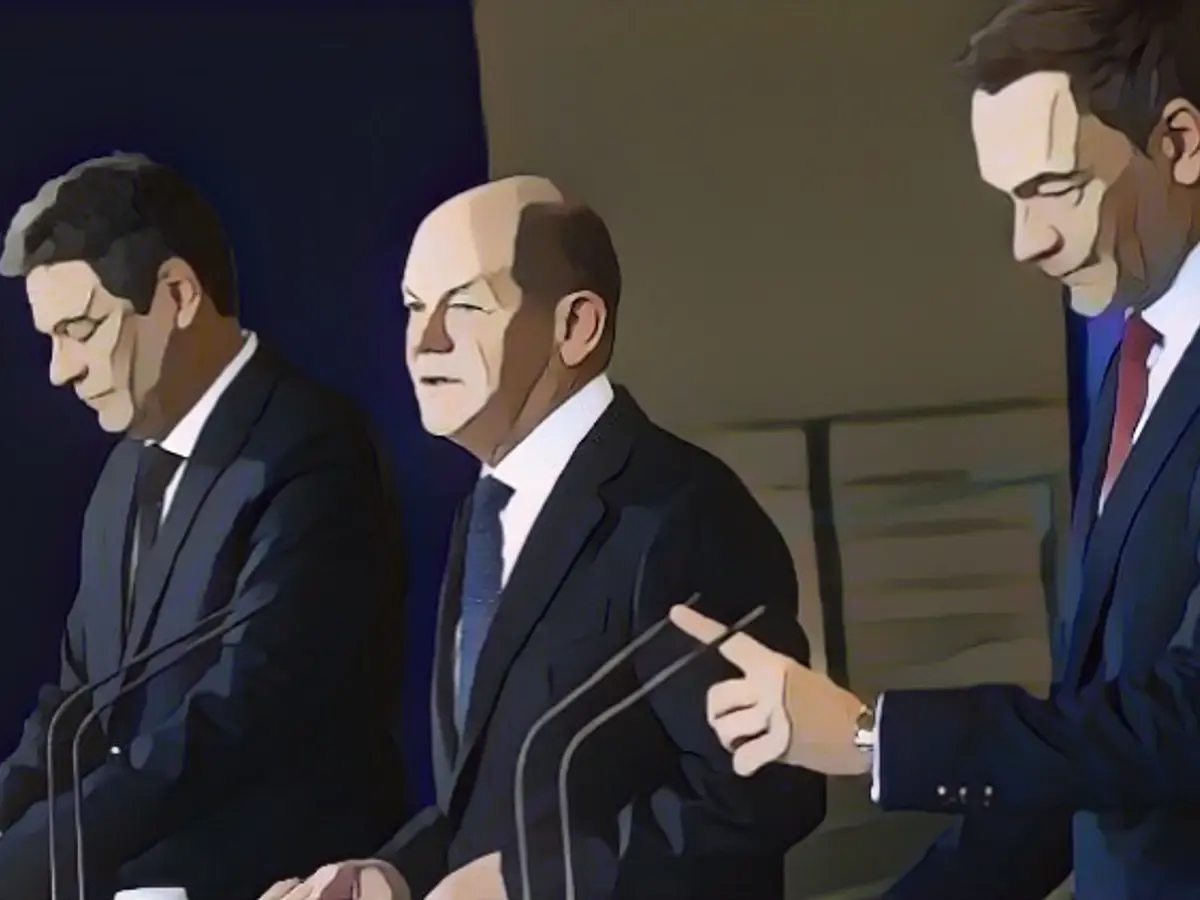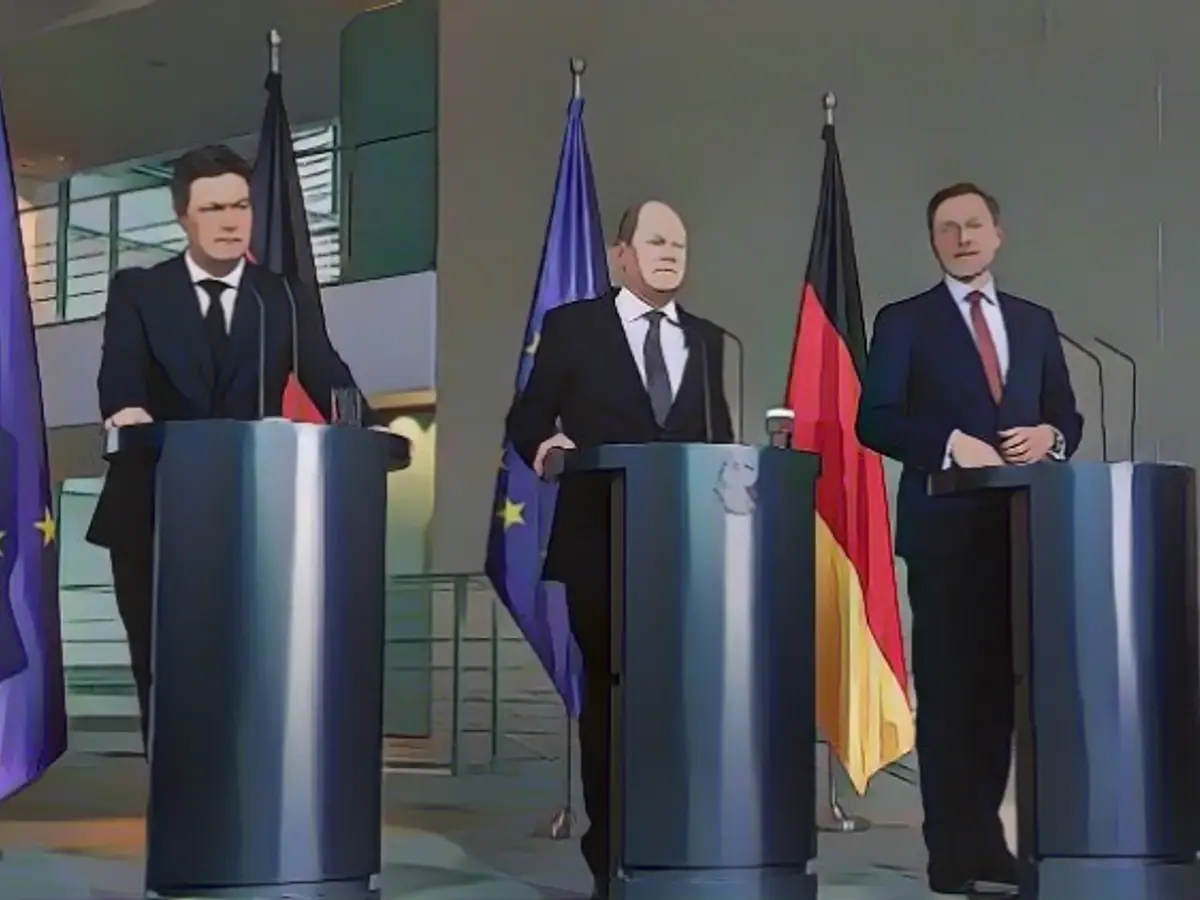Criticizing Billions in Aid for Semiconductors and Batteries: Lindner's Unconventional Viewpoint
Amidst budget negotiations, Finance Minister Lindner has sparked controversy with his skepticism towards billions in investments for the semiconductor and battery sector. Despite the industries' potential to create jobs and boost Germany's competitive edge, Lindner is unsure if Germany should champion key industries like semiconductors, batteries, or hydrogen.
Challenging Subsidies
In opposition to Chancellor Olaf Scholz and Economics Minister Robert Habeck, who advocate for billion-dollar investments in Magdeburg and Dresden's semiconductor factories, Lindner remains steady in his stance. When pressed about his perspective on the Intel factory in Magdeburg, Lindner reiterated his long-term commitment to establishing resilient supply chains, especially in minimizing reliance on China's market.
He addresses the origin of semiconductors as immaterial, as long as they derive from various sources, striving to avoid dependence on any single country.
Divided Opinions within the Coalition
Saarland's Minister President, Anke Rehlinger, urges the traffic light coalition to fulfill their promises regarding subsidies and investment aid for multiple companies. Rehlinger emphasizes the importance of maintaining Germany's reputation for reliability to prevent potential losses in this area.
Meanwhile, certain policymakers remain puzzled by the lackluster progress in financing for renewable energy ventures, such as green Saar steel, which remains without EU funding.
Navigating Germany's Challenge
Lindner stresses that Germany's business climate has deteriorated substantially, and he advocates for budget consolidation and an "economic dynamization package" through the cancellation of debt limit suspensions and tax increases.
In the bigger picture, Lindner's position on subsidies raises questions regarding Germany's long-term investment approach towards crucial industries like semiconductors and batteries, which are vital components of the energy transition.
Industry Insights
The Finance Minister's stance on billions in investments for the semiconductor and battery sectors brings forth a lively debate among politicians and industry leaders. Although these financial supports to the renewable energy sector and similar industries are essential to tackle risks and drive technological advancements, concern arises about over-reliance on a single country for critical components.
As the German government aims to secure resilient supply chains and develop robust energy transition plans, it's crucial to consider a balanced approach to support vital industries while protecting a diverse economic landscape.
In the end, the fulfillment of pledged funding and adherence to a consistent approach will showcase the government's commitment to preserving Germany's competitive edge in the global market.
Economic Context in Germany
- Economic Slump: Germany currently faces a deep economic recession, with the Federation of German Industries (BDI) predicting a 0.1% contraction in 2025, following declines in 2024 and 2023 [4]. This structural fluctuation in industrial growth is attributed to weak order books, idle machinery, and reduced investment.
- Industrial Support: The BDI has underscored the need for structural support to address the current economic downturn. This would involve measures to stimulate investment and industrial growth [4].
- Alternative Proteins: A recent study suggests that strategic investments in alternative proteins could catalyze economic growth, create jobs, and promote sustainability. However, this sector necessitates substantial regulatory support and investment to reach its full potential [2][3].
Industry-Specific Support
- Semiconductor and Battery Sectors: Although specific opinions from Finance Minister Lindner are unavailable, the broader context suggests that Germany may lean towards supporting strategic sectors like semiconductors and batteries due to their potential for innovative exports and future-proof employment. The battery market, for instance, is experiencing rapid growth due to the energy transition and the fight against climate change [1].
- Policy Interventions: For nascent sectors like alternative proteins, policymakers are encouraged to provide targeted support through regulatory frameworks, public R&D investments, and incentives for farmers to ascend as essential players in a diversified protein system [2][3].
Long-Term Investment Strategy in Industries
- Strategic Investments: Germany's long-term approach to industry investment likely involves strategic investments in sectors with high growth potential, contributing to sustainability. This covers not only traditional manufacturing sectors but also blossoming technologies like alternative proteins and clean energy solutions [1][2][3].
- Regulatory Support: Regulatory support is crucial for sectors like alternative proteins, which require a supportive regulatory environment to thrive. Policymakers must ensure a regulatory framework conducive to innovation and investment in these sectors [2][3].
- Economic Diversification: Germany's economic diversification strategy likely involves a mix of nurturing traditional industries and investing in emerging sectors. This diversification can help mitigate risks associated with economic downturns and establish Germany as a leader in various global markets [1][2][3].
In conclusion, while specific opinions from Finance Minister Lindner are unspecified, the broader context implies that Germany may favor strategic sectors like semiconductors and batteries due to their potential for innovative exports and long-term employment. The nation's long-term approach to industry investment includes strategic investments, regulatory support, and economic diversification to guarantee sustainable growth and competitiveness.








